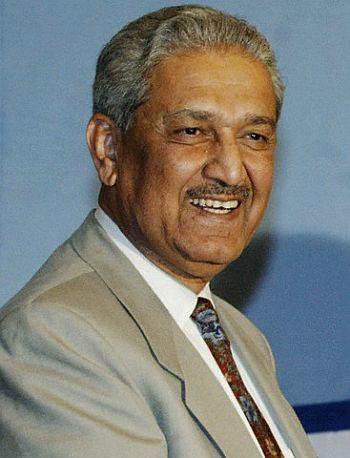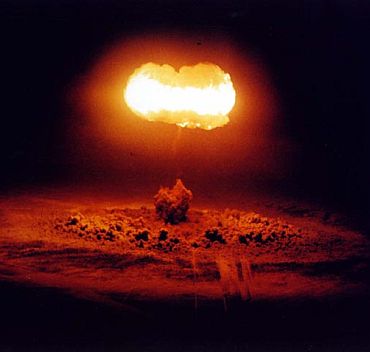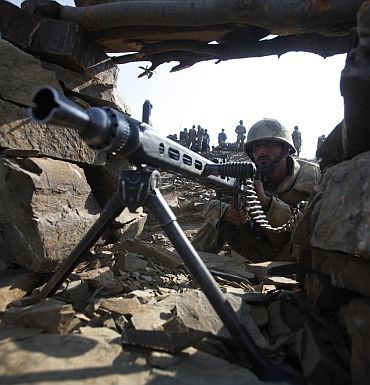 | « Back to article | Print this article |
'No chance of an Indo-Pak nuclear war'
Pakistan's disgraced nuclear scientist A Q Khan has said that despite "saber rattling" between Islamabad and New Delhi, there is no chance of a nuclear war between the two neighbours.
Khan, who has been accused of selling nuclear secrets to Iran, Libya and Syria, wrote in Newsweek magazine that nuclear weapons in both countries had prevented war for the last 40 years.
"India doesn't need more than five weapons to hurt us badly, and we wouldn't need more than 10 to return the favour," he said.
"That is why there has been no war between us for the past 40 years."
Click on NEXT to read further...
'Pak went nuclear to ward off blackmail from India'
"India and Pakistan understand the old principle that ensured peace in the Cold War: mutually assured destruction," he said.
"The two (India and Pakistan) can't afford a nuclear war, and despite our saber rattling, there is no chance of a nuclear war that would send us both back to the Stone Age," he said.
He claimed that Pakistan had to invest in a nuclear programme "to ward off nuclear blackmail from India".
"I would like to make it clear that it was an Indian nuclear explosion in May 1974 that prompted our nuclear program, motivating me to return to Pakistan to help create a credible nuclear deterrent and save my country from Indian nuclear blackmail," he said.
'I hope I live to see Pakistan and India living harmoniously'
"We are forced to maintain this deterrence until our differences with India are resolved. That would lead to a new era of peace for both countries," Khan wrote.
"I hope I live to see Pakistan and India living harmoniously in the same way as the once bitter enemies Germany and France live today," he said.
Khan blasted various governments in Pakistan as well as "successive incompetent and ignorant rulers" for not engaging in basic development of the country, and raising the people's standard of living.
"We are far worse off now than we were 20, or even 40, years ago when we were subjected to embargoes," he said.


